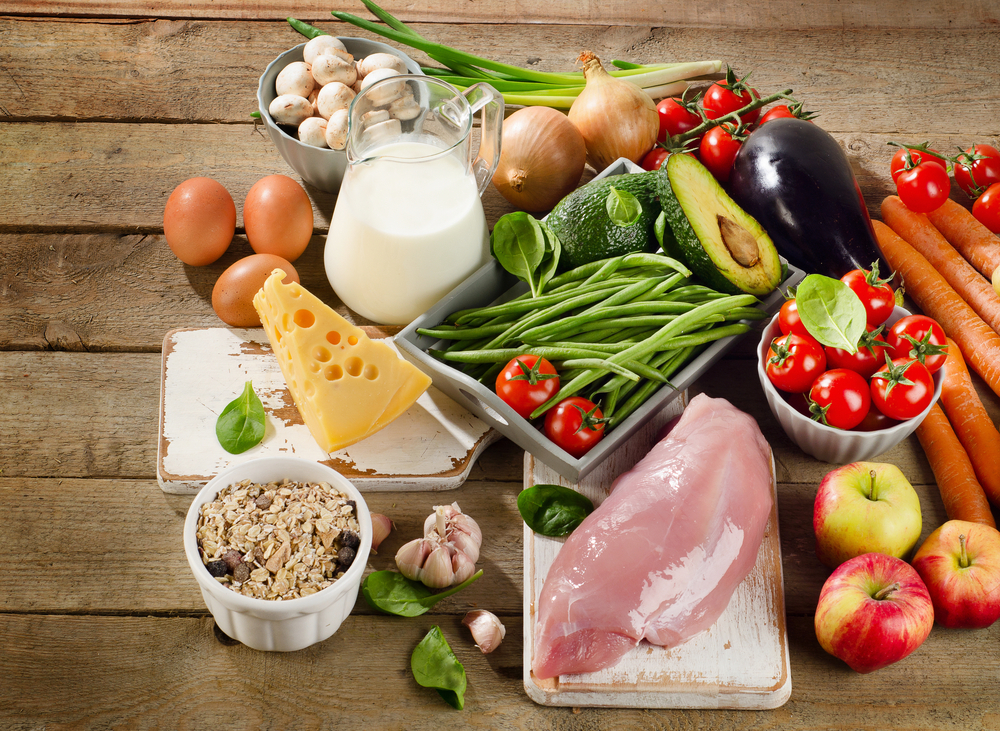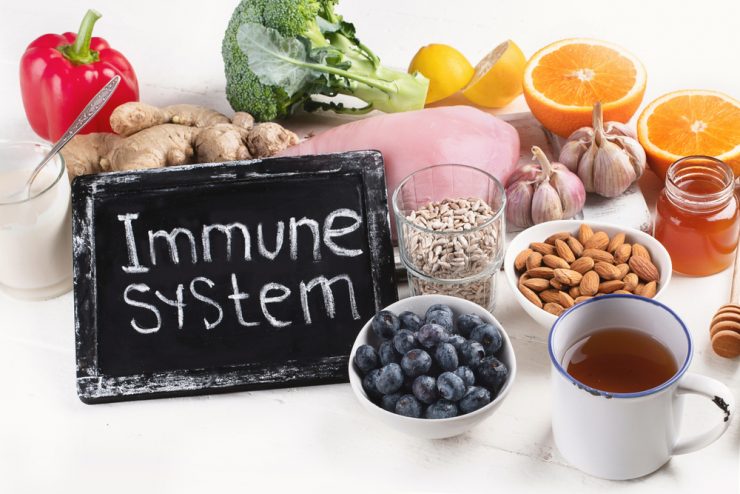As winter approaches, flu may become a particular issue more so this year than in previous years. Overall, we have lower immunity due to lockdowns and Covid may bring a difficult winter, especially if flu and Covid are caught at the same time.
Clinical Nutritionist Suzie Sawyer tells us how to protect ourselves as much as we can this winter.
Focus on a healthy diet

Our diet provides us with a wonderful array of immune-boosting nutrients. Top choices are vitamin A, vitamin C, vitamin D, Vitamin E and vitamin B6 and minerals zinc, selenium, and calcium, but this list is by no means exhaustive. Food also provides powerful antioxidants, which are very immune-supportive.
Go for colourful meals

Essentially, it’s all about the colour on your plate; the more colourful and varied your meals, the more protective nutrients you’ll be eating. As an example, start the day right with super food muesli, which includes mineral-rich oats, vitamin C and antioxidant-rich blueberries, raspberries, and mango. Add a sprinkle of zinc-containing seeds and a big dollop of natural yoghurt for its high calcium content.
The importance of Vitamin D

Vitamin D is vital for the immune system but it’s not readily available in foods, so needs to be supplemented – go for a minimum of 10 micrograms daily. If your skin hasn’t seen much sun over the last few months (the body can store vitamin D from the action of sunlight on the skin), and especially during the darker months, then higher levels of supplementation may be needed.
The role of gut health and immunity

It may be difficult to comprehend but most of our immune system resides in the gut, so we need to look within for optimal wellbeing. The gut microbiome (often referred to as ‘friendly bacteria) play a vital role in the effective working of the immune system. These friendly bacteria need feeding with plenty of fruits, vegetables, and other fibre-rich foods. Jerusalem artichokes, asparagus, raspberries, broccoli, beans, lentils, and whole grains are great choices and also provide plenty of immune-boosting nutrients.
Cut down on sugar

Sugar in all its forms depletes the friendly guys, so it makes sense to take a long (and honest) look at intake. The worst offenders are refined cakes, biscuits, and pastries. The other issue with sugar is that it causes spikes in blood sugar, which increases production of pro-inflammatory proteins, negatively affecting immunity.
If ditching sugar completely is difficult (and let’s face it, most of us would struggle), then just allow yourself one or two ‘treat’ days each week.
Invest in self-care

Looking after yourself emotionally and physically is important for supporting immunity, and overall health and wellbeing. It’s about being kind to yourself and providing the body with what it needs to function optimally.
Sleep well

Getting sufficient restorative sleep is vital and should be prioritised, especially if this is a problem. Unfortunately, we know that poor sleep is very common in the UK. Set yourself a good bedtime routine, turn off all electronic devices that emit disruptive blue light at least two hours before bed, grab a good book and create a sanctuary of calmness in your bedroom.
Certain herbs are especially helpful for sleep, which include valerian and passionflower, together with the amino acid L-theanine. They can all easily be supplemented and may make an amazing difference to sleep quality.
Reduce stress

Reducing stress is also an essential part of your self-care programme. Firstly, acknowledge it’s an issue and make changes to support yourself better. Taking up yoga, going for a daily brisk walk, practising mediation and deep breathing, can all make a real difference. Try to do something every day so it becomes part of your routine.
So, by making a few simple dietary and lifestyle changes you can help to protect yourself and your family from any bugs that may be around this winter.
























Add comment